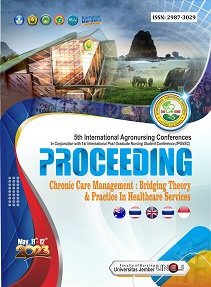NURSE-LED INTERVENTIONS IN PREVENTING OVERWEIGHT AMONG PRESCHOOL CHILDREN: A NARRATIVE REVIEW
Abstract
Overweight and obesity during early childhood are increasingly prevalent and pose serious health risks, including the early onset of metabolic and cardiovascular conditions. Preschool children (aged 0–5 years) are at a critical developmental stage where prevention strategies can have long-lasting effects. Nurses, due to their frequent interactions with children and families in various settings, are strategically positioned to lead interventions aimed at preventing overweight in this population. This narrative review aims to explore and synthesize evidence on nurse-led interventions that target overweight prevention among preschool-aged children across diverse settings. The review identified four major thematic areas: (1) school-based interventions such as nutritional education and physical activity promotion; (2) community-based approaches including home visits and culturally tailored family programs; (3) primary care and clinical interventions involving BMI screening and lifestyle counseling; and (4) digital and telehealth strategies like mobile health and online coaching. Effectiveness varied across settings, with key success factors including family engagement, nurse training, and interprofessional collaboration. Barriers included limited resources, inconsistent parental involvement, and a lack of policy support. Nurse-led interventions demonstrate significant potential in preventing overweight among preschool children, especially when integrated into family-centered, community-based, and digital health frameworks. Sustainable implementation requires capacity building, supportive health policies, and intersectoral collaboration to overcome existing barriers and enhance intervention reach and impact.








